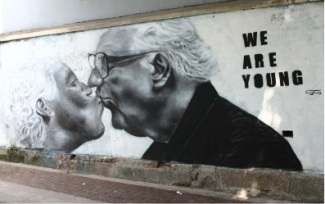Health, Space and Ways of Life in Old Age

Rather than how many they are, this dissertation has focused on how Spanish elderly people live regarding functional autonomy and independent living. And it has done so by exploring different spaces (the home, whether it be an individual’s home or an institution; and social spaces). It has examined several aspects related to the life and residential strategies of the elderly, such as their living arrangements, daily activity patterns and the mediation of health on these areas.
The demographic approach has age, gender and cohort as major variables of the analysis. The study has been complemented with sociodemographic variables related to family formation trajectories and socioeconomic status, as well as health indicators and functional ability. Several data sources were used to study the ways of life in old age for different populations in a period that includes the last three decades.
People remain healthy and active for several years after age 65. The loss of autonomy in performing daily activities is quite moderate until ages 75-80. This age threshold tends to mark major changes in the lifestyles of the elderly: both in terms of residence and in the forms of socialization outside the home. For instance, the loss of a spouse means the loss of companionship and emotional support, as well as a potential source of care in case of physical or mental health decline.
Results show the trends in health and residential behavior of the past three decades in Spain. First, chronic cardiovascular conditions have worsened, while there are no signs of change in the levels of disability of the elderly. Second, intergenerational co-residence has declined, while the shares of residential independence among elderly living at home and institutionalization have both increased. However, the most interesting findings of this study are derived from the population diversity that shapes different ways of living in old age in both private and public spaces. The main conclusions are structured around population heterogeneity in terms of sex, generational and social affiliations. In addition, it uncovers different lifestyles depending on family histories.
The thesis focuses on the qualitative aspects of demographic aging with the intention of repositioning the elderly in this debate as actors with agency, rather than a population that endangers the welfare state by potentially triggering fiscal imbalances. Finally, this dissertation also invites to reflect on the quality of age as well as on the generational aspect and its implications on the changing composition of the population.
Author of the picture: Antonio López Gay.
References
“Salud, espacios y modos de vida en la vejez”, Pilar Zueras Castillo doctoral thesis, read at the Department of Geography and supervised by Dr. Anna Cabré Pla and Dr. Antonio David Cámara Hueso.

